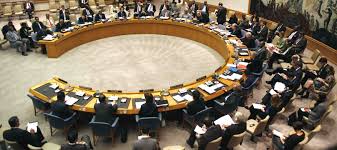There has been much talk about the reform of the United Nations (UN), particularly its Security Council. There has also been a lot of advocacy on Africa’s demand for a permanent seat on the UN Security Council. Most of the advocacy has focused on the jostling for permanent seats on the UN Security Council by a plethora of states, with Africa’s demand portrayed as an afterthought. Africa has demanded time and again a permanent seat on the UN Security Council to enable it to effectively contribute to the peacekeeping and conflict resolutions of the UN Security Council, whose agenda is dominated by African issues.
Reform of theUnited Nations Security Council includes five major issues: regional representation, the question of the vetoheld by the five permanent members, categories of membership, the size of an enlarged Council and its working methods, and the Security Council-General Assembly relationship.
The reform of the UN Security Council necessitates the agreement of at least two-thirds of UN member states and that of all the permanent members of the UN Security Council enjoying the veto right. Even though the geopolitical realities have changed drastically since 1945, when the set-up of the current Council was decided, the Security Councilhas changed very little during this long period. The winners of Second World Warshaped the UN Charterin their national interests, dividing the veto-power amongst themselves. The imbalance between the number of seats on the UN Security Council and the total number of member States became evident and the only significant reform of the Security Council took place in 1965 after the ratificationof two thirds of the membership, including the five permanent members of the Security Council. The reform included an increase of the non-permanent membership from six to 10 members. In all of these reforms, Africa was not given a major say in affairs of the UN Security Council, nor a permanent seat.
Out of the 193 members of the UN, Africa has 54 states, making it the continent with the greatest number of UN member states. Presently the UN Security Council is made up of five permanent members; the United States of America, France, China, Russia and the United Kingdom. The UN Security Council is also composed of 10 non-permanent members, including Togo, South Africa and Morocco from Africa. The non-permanent seats are on a two-year regional rotation basis.
The UN Charter therefore has impartial criteria for the selection of UN Security Council permanent members. The processes that Africa should undertake to secure permanent membership on the UN Security Council and the criteria to be used in selecting its permanent representatives in the UN Security Council, remains wanting.
In September Show more
2012, President Michael Sata of Zambia, addressing the UN General Assembly in New York, urged Africans to put more pressure for a permanent seat on the UN. In May 2013, another African President, Robert Mugabe of Zimbabwe also said it was high time Africa had a permanent seat on the UN Security Council.
President Sata’s statement was in line with the Committee of 10 (C10). The C10 is an African Union (AU) creation advocating for Africa to have two permanent seats on the UN Security Council with veto powers and additionally, two non-permanent seats to look into the historical injustices that Africa suffered and to keep abreast with the geo-political realities of the modern times.
Most of the UN’s peacekeeping activities in the world are concentrated on the continent, which warrants the continent to have a firm say on how peace-keeping operations are carried out on the continent. A lot of African countries like South Africa, Nigeria and Tunisia qualify to seat on the UN Security Council. South Africa for instance is the economic giant of Africa. Nigeria is also an economic giant and attracts major oil companies, despite the much talk about conflict and insecurity.
The continent should not only be a hub for land grabbing and economic exploitation. There is need to equally give Africa the chance to decide on major global issues especially affecting their wellbeing. Africa’s renaissance is a reality; there is no turning back. To solidify and hasten this renaissance, it is germane for Africa to have a say in the making of major international decisions. Africa should be able to decide on major missions in the Democratic Republic of Congo, rather than allow certain UN Security members, who may have certain economic interests in this country, decide on the lives of Africans. There is need to give Africa a permanent seat on the UN Security Council, and the time is now.
Chofor Che is an associate of AfricanLiberty.org and an integral part of the Voice of Liberty initiative. He is also a Doctoral Law candidate at the University of the Western Cape and blogs at http://choforche.wordpress.com/.


